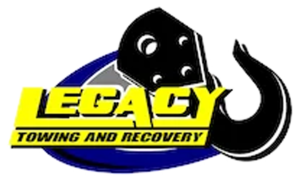Understanding Vehicle Breakdowns in Iowa and How to Prevent Them
Driving across the rolling farmlands and bustling city streets of Iowa offers a unique blend of scenic beauty and practical convenience. Whether you’re navigating the rural highways between Cedar Rapids and Iowa City or cruising the busy boulevards of Coralville, being stranded with a vehicle breakdown in Iowa can quickly turn your day around.
In this extensive guide, we’ll dive into the top causes of vehicle breakdowns in Iowa and share practical, expert-backed strategies to avoid them. From battery failures on a cold Des Moines morning to overheating engines under the scorching July sun, understanding these common issues and how to prevent them will keep you safer, save you money, and help you avoid that dreaded tow.
We’ll cover:
- The 10 most frequent breakdown causes, drawing insights from trusted sources like the AA and MyAutoLoan
- Iowa-specific driving conditions that heighten certain risks
- Step-by-step preventative maintenance tips
- When to call for professional roadside assistance
- How to choose the right local towing service
By the end of this guide, you’ll have an actionable plan to minimize breakdown risk and know exactly who to call—like Legacy Towing & Recovery—if you ever need fast, reliable help in Coralville, North Liberty, Tiffin, or anywhere in Iowa City.
Why Breakdown Prevention Matters for Iowa Drivers
Iowa’s diverse climate and geography create unique challenges for motorists:
- Cold Winters: Sub-zero temperatures in January can sap battery power and thicken fluids.
- Hot Summers: Sweltering July heat puts extra stress on cooling systems.
- Rural Roads: Long stretches between towns mean longer waits if you’re stranded.
The average tow call in rural Iowa can take 30–60 minutes to resolve. Preventative maintenance and early detection of issues help you avoid being stuck in the cold or under the sun, improve vehicle reliability, and reduce repair costs over time.
1. Battery Failures: The #1 Cause of Breakdowns
Understanding Battery Failure
Batteries account for a high percentage of breakdowns across Iowa and nationwide. According to the AA’s Top Ten Breakdown Causes, battery issues top the list, especially in areas with extreme temperatures.
Why batteries fail:
- Cold temperatures reduce cranking power by up to 50%.
- Alternator issues prevent the battery from recharging properly.
- Age: Car batteries typically last 3-5 years.
- Parasitic drains: Electronics left on can slowly discharge the battery.
Preventative Tips for Iowa Winters
- Regular testing: Have your battery and charging system checked every six months, especially before winter.
- Visual inspection: Look for corrosion on terminals and ensure connections are tight.
- Keep it warm: If you park outside, use a battery blanket or park in a garage to maintain a warmer environment.
- Avoid short trips: Frequent, short drives don’t allow the alternator enough time to recharge the battery fully.
Local resource: If you do face a dead battery, Legacy Towing & Recovery offers rapid roadside battery service and testing in Coralville and Iowa City.
2. Flat Tires and Blowouts
Common Causes of Tire Failures
Flat tires come in many forms:
- Punctures from nails, glass, or debris on rural highways.
- Valve stem failures allow air to escape.
- Over- or underinflation leads to uneven wear and blowouts.
- Tire aging and dry rot cause weak spots.
The MyAutoLoan guide highlights that underinflation causes up to 60% of tire failures.
Avoiding Flats on Iowa Roads
- Monthly pressure checks: Use a reliable gauge and inflate to manufacturer specs.
- Inspect tread depth: Replace tires when tread wears below 2/32 of an inch (most states’ minimum). For winter traction in Iowa, aim for at least 4/32.
- Rotate tires: Every 5,000–7,000 miles to ensure even wear.
- Carry a repair kit: Include a plug kit and a small inflator for temporary fixes.
In an emergency: Call Legacy Towing & Recovery for mobile tire change and roadside assistance across North Liberty, Tiffin, Coralville, and beyond.
3. Engine Overheating
Why Engines Overheat in Iowa Summers
High ambient temperatures, tow-heavy loads, and low coolant levels lead to overheating, especially on gravel backroads or while towing trailers at events like the Iowa State Fair.
Key factors:
- Insufficient coolant or leaks in the radiator.
- Faulty water pump failing to circulate coolant.
- Clogged radiator fins or hoses.
- Broken thermostat preventing proper coolant flow.
Preventative Cooling System Maintenance
- Coolant flush: Replace every 2 years or 30,000 miles.
- Inspect hoses and belts: Look for cracks, bulges, or leaks.
- Check radiator cap: A faulty cap can fail to maintain proper pressure.
- Monitor temperature gauge: Pull over at the first sign of rising temps.
When your temperature light comes on, pull over immediately and call for help rather than risk head gasket damage. Legacy Towing & Recovery’s trained technicians can assist with water delivery, cooling system checks, or tow your vehicle to a certified shop.
4. Fuel-Related Issues
Running Out of Fuel
It sounds obvious, but running dry is a surprisingly common Iowa issue when you’re exploring rural routes.
Avoidance tips:
- Know your range: Reset trip meters after fill-ups.
- Fuel apps: Use navigation apps that show station locations along your route.
- Carry a jug: A 1-gallon gas can could be a lifesaver if you’re truly stranded.
Contaminated Fuel
Fuel pickups from rural pumps can introduce water or debris.
- Use reputable stations in Iowa City or Cedar Rapids.
- Fuel additives: Keep a pint of injector cleaner in the trunk.
Fuel issues often require draining and filter replacement—tasks best left to professionals.
5. Starter and Ignition Failures
Symptoms and Causes
When you turn the key and hear a clicking noise or nothing at all, the starter or ignition switch may be at fault.
Common causes:
- Worn starter motor brushes.
- Faulty ignition switch preventing power to the starter solenoid.
- Electrical connection issues like loose wires or corrosion.
Prevention and Quick Fixes
- Avoid restarts: Don’t crank the engine repeatedly without pause.
- Check connections: Ensure battery cables and starter wiring are clean and tight.
- Professional inspection: Have your ignition switch and starter tested every 50,000 miles.
When Dallas County roads leave you stranded with a non-cranking engine, a local tow from Legacy Towing & Recovery can transport your vehicle to the nearest repair facility.
6. Electrical System Faults
Complex Modern Electronics
Today’s vehicles contain dozens of onboard computers, sensors, and electrical accessories. A single electrical fault can cause everything from warning lights to complete shutdown.
Frequent issues include:
- Alternator failure draining the battery.
- Blown fuses disabling critical systems.
- Short circuits causing intermittent power loss.
Keeping Your Electrical Systems Healthy
- Regular charging system checks: Test alternator output at service intervals.
- Inspect wiring harnesses for fraying or rodent damage in garage-stored cars.
- Replace old fuses with correct amperage ratings.
In a pinch, roadside electricians are rare, so call Legacy Towing & Recovery to get you to a shop equipped for complex electrical diagnostics.
7. Transmission and Drivetrain Problems
Avoiding Transmission Failures
Transmission repairs are among the costliest. Slipping gears, delayed engagement, or grinding noises are red flags.
Prevention steps:
- Fluid changes: Automatic transmissions need fresh fluid every 30,000–60,000 miles.
- Service manuals: Follow model-specific recommendations for manual clutch adjustments.
- Avoid towing beyond limits: Check your owner’s manual for tongue weight ratings.
Drivetrain Maintenance
- CV joint and axle inspections: Listen for clicking when turning.
- U-joint greasing: On older trucks and SUVs, keep universal joints lubricated.
If your vehicle becomes undriveable due to transmission trouble, professional towing is the only safe solution.
8. Cooling System and Radiator Leaks
Detecting Leaks Early
Look for puddles of coolant under your car or a sweet smell.
Leak sources:
- Radiator cracks
- Hose splits
- Water pump seal failure
Leak Prevention and Temporary Fixes
- Inspect hoses every oil change.
- Use radiator sealants as short-term fixes.
- Replace old hoses every 5 years.
A quick tow from Legacy Towing & Recovery can get you to the parts store or a mechanic for permanent repair.
9. Brake System Failures
Recognizing Warning Signs
Squealing, grinding, or a spongy brake pedal are signals of brake system distress.
Key failure points:
- Worn pads or rotors
- Leaking brake lines
- Low brake fluid levels
Keeping Brakes in Top Shape
- Pad inspections every 10,000 miles.
- Brake fluid flush every 2 years.
- Immediate service if warning lights illuminate.
Never drive on failing brakes—call for a tow to ensure both your safety and avoid further damage.
10. Timing Belt Breakage
Critical Maintenance Item
A snapped timing belt can leave you stranded and cause catastrophic engine damage.
Manufacturer schedules vary but typically:
- Replace between 60,000–100,000 miles.
- Inspect at every major service.
Avoiding a Costly Surprise
- Document service: Keep records of belt changes.
- Listen for noise: A slapping or ticking can signal belt wear.
If your timing belt fails in rural Johnson County, you’ll need reliable towing to the nearest certified shop—Legacy Towing & Recovery has you covered.
Staying Prepared with Emergency Roadside Assistance
Even the most diligent maintenance can’t eliminate every risk on Iowa’s roads. When a breakdown does happen, having a solid emergency roadside plan in place is your best defense. From knowing how to safely change a tire to having the right phone numbers at your fingertips, preparation can turn a stressful situation into a minor delay.
For Coralville-area drivers, our Emergency Roadside Assistance Tips for Coralville, IA Drivers guide is packed with local insights on 24/7 towing contacts, safety gear checklists, and step-by-step protocols to follow whenever you’re stranded. Bookmark it now to ensure you’re never caught off guard.
Putting It All Together: Your Breakdown Prevention Checklist
- Monthly: Battery test, tire pressure check
- Every 3,000–5,000 miles: Oil change, fluid level inspections
- Every 30,000 miles: Transmission service, coolant flush
- Every 60,000 miles: Timing belt replacement (model-dependent)
- Seasonally: Pre-winter and pre-summer full inspections
Keep a digital or printed copy of this schedule in your glovebox for easy reference.
When You Still Need Help: Calling Professional Assistance
Even with meticulous care, breakdowns happen. When you need a tow or mobile repair, consider:
- Local expertise: A family-owned business like Legacy Towing & Recovery knows Iowa roads and weather patterns.
- 24/7 availability: You never know when you’ll need help outside normal business hours.
- Transparent pricing: Review towing rates before calling to avoid surprises.
- Service area coverage: Check that Coralville, North Liberty, Tiffin, and Iowa City are all in range by visiting service-area.
Keep their number—(641) 208-0654—saved in your phone right now.
Drive Proactively, Stay Prepared
Vehicle breakdowns in Iowa can stem from a myriad of causes—from simple flat tires to complex transmission failures. While you can’t eliminate risk entirely, regular maintenance, early inspections, and knowing when to call in professionals drastically reduce the chance you’ll be stranded.
By following the strategies in this guide, you’ll be ready to:
- Prevent the top 10 breakdown causes
- Spot early warning signs before they become emergencies
- Take action swiftly with confidence
- Rely on trusted local experts like Legacy Towing & Recovery when you need help
Safe travels across Iowa’s heartland!
Disclaimer: This article is informational and not a substitute for professional automotive advice. Always consult your vehicle’s owner’s manual and certified mechanics for maintenance schedules.

